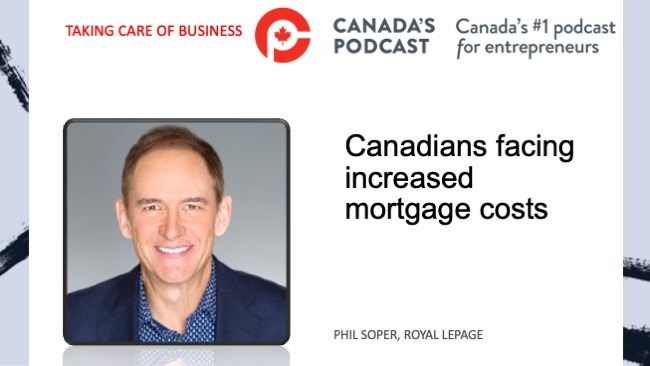Real gross domestic product (GDP) rose 0.7% in the third quarter, the fifth consecutive quarterly increase, reported Statistics Canada on Tuesday.
Growth in exports, non-residential structures, and business investment in inventories were moderated by declines in housing investment and household spending. Final domestic demand, composed of expenditures on final consumption and capital investment, edged down 0.2%, following a 0.6% increase in the second quarter, said the federal agency.
It said several sectors that drove growth in the second quarter continued to be among the main drivers of growth in the third quarter. Natural resources—more specifically, the agriculture, forestry, fishing and hunting (+8.8%) and mining and quarrying and oil and gas extraction (+2.0%) sectors—were among the main contributors to growth in the quarter. Better growing conditions in Western Canada, such as higher-than-average precipitation and moderate temperatures throughout the year, continued to support high annual crop yield and harvest estimates, resulting in another strong quarter for crop production (except cannabis) (+17.7%).

Andre Furtado
“Housing investment (-4.1%) declined for the second consecutive quarter, coinciding with higher interest rates. Renovations (-6.6%) were down for the second consecutive quarter, and resale activities (-13.8%) were down for the third consecutive quarter. These declines were partly offset by new construction (+2.4%), which rose after four quarters of decreases. Ontario, the western provinces, and Nunavut recorded increases in new housing construction, while the Atlantic provinces and Quebec posted decreases. On a nominal basis, housing investment represented 8.2% of GDP, a decline from the more than double digit proportion from early 2021,” said Statistics Canada.
“Business investment in non-residential structures (+2.8%) continued to increase, a seventh consecutive quarter of growth. Investment in engineering structures rose 3.3%, led by continued investment on the Kitimat liquefied natural gas project in British Columbia and wind farms in Alberta. Additionally, there was a $64 million disinvestment in weapon systems assets in the quarter, reflecting the continued aid provided to Ukraine in the form of military equipment.”
StatsCan said household disposable income rose 0.8%, while the growth in household spending slowed from 4.3% in the second quarter to 0.5% (in nominal terms) in the third quarter. Consequently, the household saving rate rose from 5.1% in the second quarter to 5.7% in the third quarter. By comparison, the savings rate in the third quarter of 2019 was 2.5%. The household savings rate is aggregated across all income brackets; in general, savings rates are greater in higher income brackets.
The federal agency also reported on Tuesday that Real gross domestic product (GDP) edged up 0.1% in September. Growth was led by goods-producing industries (+0.3%), while services-producing industries were essentially unchanged.
“Advance information indicates that real GDP was essentially unchanged in October. Increases in the public, transportation and warehousing, construction and wholesale trade sectors were offset by decreases in the manufacturing and mining, quarrying and oil and gas extraction sectors. Due to its preliminary nature, this estimate will be updated on December 23 with the release of the official GDP data for October,” it said.
Andrew Grantham, an economist with CIBC Economics, said overall, while the headline figure for Q3 was above expectations and the recent Bank of Canada forecasts, “the weakness in domestic demand and sluggish growth to start Q4 shouldn’t change the view that interest rates will only move modestly higher from here before a pause in 2023.”
James Orlando, Senior Economist with TD Economics, saidCanada’s economy continued its streak of above trend growth in the third quarter, but there are worrying trends.
“Going into today’s report, we were looking for the impact of loosening supply chains and the push to develop Canada’s infrastructure to take advantage of our abundance of natural resources. This showed up in strong export growth and continued investment of machinery, equipment, and non-residential structures. However, rising interest rates and high inflation have weighed on consumer spending, a trend which has started earlier than expected, but should last through next year,” he said.
“Canadian bond yields are moving higher this morning, with the CA 2-year and 10-year at 3.97% and 3.0%. It is expected that the BoC will continue to hike its policy rate by 50 basis points in December, though we believe an end to the hiking cycle is coming. The interest rate sensitive sectors have retrenched, with residential investment down 15.3% in Q3. This is flowing to the consumer side of the economy, which will force the BoC to soon pause and wait for the impact of past interest rate hikes to have their effect on the economy.”
 (Mario Toneguzzi is a veteran of the media industry for more than 40 years and named in 2021 a Top Ten Business Journalist in the world and only Canadian)
(Mario Toneguzzi is a veteran of the media industry for more than 40 years and named in 2021 a Top Ten Business Journalist in the world and only Canadian)
About Us
Canada’s Podcast is the number one podcast in Canada for entrepreneurs and business owners. Established in 2016, the podcast network has interviewed over 600 Canadian entrepreneurs from coast-to-coast.
With hosts in each province, entrepreneurs have a local and national format to tell their stories, talk about their journey and provide inspiration for anyone starting their entrepreneurial journey and well- established founders.
The commitment to a grass roots approach has built a loyal audience with over 120,000 downloads and thousands of subscribers on all our social channels and YouTube. Canada’s Podcast is proud to provide a local, national and international presence for Canadian entrepreneurs to build their brand and tell their story.
Advertising and Sponsorships: At Canada’s Podcast we are here to help you reach your communication objectives and get you results. If you are looking to build your brand, promote your products/services, announce an event, then you will want to reach our extensive data base of owners and entrepreneurs.
Contact sales at: robert@canadaspodcast.com and find out how we can make an impact on your bottom line with our sponsorship packages. Sponsors include: RBC Bank, The Cooperators Insurance, Silicon Valley Bank, eBay, Lethbridge Economic Development, VanHack, CBC Dragon’s Den, The Competition Bureau, The Vancouver Board of Trade and more.





